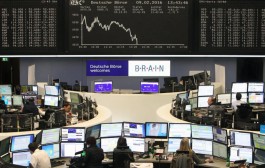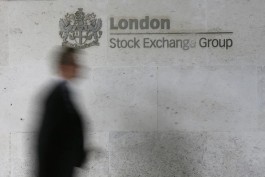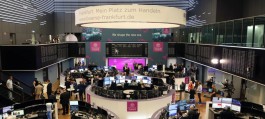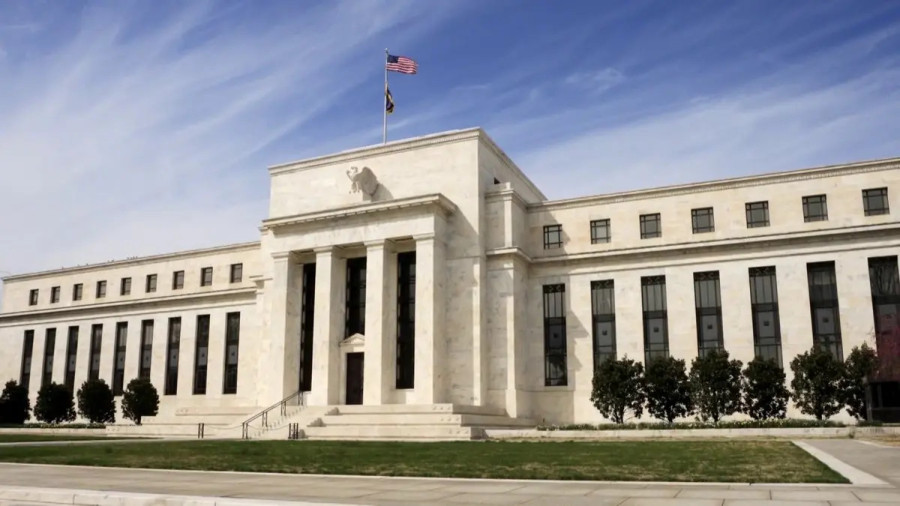Global financial institutions are increasingly concerned about the consequences of the longer-term higher interest rates we have now reached.
The rise in long-term bond yields reflects an increasingly widespread belief among investors that the days of borrowing at lower costs are over. Many attendees at this week's International Monetary Fund meetings in Morocco warned that collective monetary tightening now threatens to shock a global economy already on the brink, as war rages in the Middle East.
In this regard, Gita Gopinath, the second official at the International Monetary Fund, said during her participation in a panel discussion presented by Tom Kane from Bloomberg that debt has reached record high levels, at a time when we are witnessing an environment of increasingly high interest rates for a longer period. There is still a lot to watch for - and it may be going in the wrong direction.
Gopinath and her counterparts, who met in the Moroccan city of Marrakesh, do not need long to recall examples from the past of this happening. This year, they experienced a series of collapses that struck regional American banks, followed by an atmosphere of tension in the real estate sector that has not yet subsided.
Lagarde: We are monitoring the impact of monetary tightening and a possible additional increase in interest rates
Continuing to raise interest rates
The IMF meetings, held simultaneously with World Bank meetings, are the first occasion for finance ministers and central bank governors to meet to discuss the outlook since the results of a Fed seminar held in Jackson Hole last August alerted investors to the possibility of continued tight monetary policy.
Since then, oil market instability and Hamas' attack on Israel have only served to reinforce the impression of a backdrop of volatility, at a time when the global economy is still adjusting to the unprecedented pace of simultaneous tightening last year.
European Central Bank President Christine Lagarde, who participated in the session alongside Gopinath, cited the challenge for policymakers assessing the fallout from multiple shocks in recent years, coupled with the as-yet-unknown impact of rapidly rising interest rates.
This vision was consistent with the collective assessment by the G20 finance ministers. Their statement highlighted risks ranging from geoeconomic tensions, extreme weather events, natural disasters and tightening global financial conditions, developments that could exacerbate debt-induced vulnerabilities.
One such threat is that oil prices rise enough to inflame consumer prices again—a potential risk if a war between Israel and Hamas sparks a broader regional conflict.
3 scenarios for the war between Israel and Hamas and its relationship to the world economy
Concern about Iran
“I'm always concerned about Iran, the scale of volatility this situation will cause, and its impact on the global economy,” said Jason Furman, a Harvard professor and former White House adviser. Certainly we should be more concerned today than ever before.
Israel's expansion of the war raises emerging market concerns about Iran
At the same time, evidence does suggest that inflation has not yet been fully reined in, a view endorsed by the G20 statement and demonstrated by the rapid increase in core inflation rates in the US last Thursday.
Christian Sewing, CEO of Deutsche Bank, said in his statements to Francine Lacca on Bloomberg TV: I think that in general, we see that interest rates will remain higher for a longer period. This is something our customers need to keep in mind.
Swing warned that the impact of higher borrowing costs on commercial real estate means the sector is in for tough times over the next couple of years—a risk that regulators are also monitoring.
Sovereign concerns
Sovereignty concerns were also raised during the Marrakesh meetings. Earlier this week, World Bank officials warned that higher rates for a longer period could have an impact over time, not least because of the implications for growth in low-income countries.
In a statement issued Saturday, Jubilee USA Network, a Washington-based nonprofit that advocates for financial aid for poor countries, criticized ongoing campaigns to increase borrowing costs at a time when the International Monetary Fund expects weak growth and low inflation.
The destructive policy of raising interest rates means more developing countries are facing a debt crisis, said Eric Lecompte, the group's executive director. More than half of these countries are having difficulty repaying their debts and meeting the basic needs of their people.
In terms of the overall outlook, there were still some comforting statements during the Marrakesh meetings, particularly from Gopinath, who indicated that the core of the financial system was consolidating, even if many did not expect it in light of rising interest rates.
However, International Monetary Fund Director Kristalina Georgieva warned that stability threats have several dimensions. She said: It is clear that we are facing an era of higher interest rates for a longer period, and a sharp tightening of financial conditions may affect markets, banks and non-banking institutions.







































